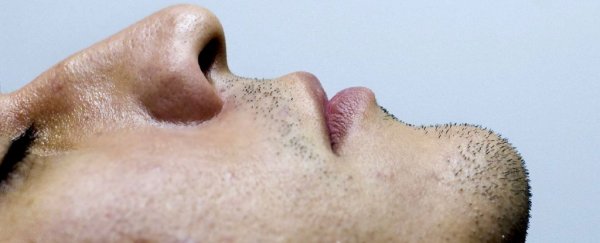Hibernation used in conjunction with radiotherapy could be the key to fighting cancer in the future, according to new research.
Putting cancer patients into a hibernation-like 'deep sleep' state could hypothetically slow down their bodily functions and halt the spread of tumours inside their tissues, while also increasing the body's resistance to radiation, scientists suggest.
The experimental treatment – which is still many years away from being attempted in humans – might sound like science fiction, but does have some grounding in reality.
Previous research involving rats showed that inducing hibernation by cooling their bodies down to 15 to 19 degrees Celsius (59 to 66.2 degrees Fahrenheit) not only slowed their metabolic functions – it also increased their radioresistance, or tolerance for radiation therapy.
Now, physicist Marco Durante from the Trento Institute for Fundamental Physics and Applications in Italy says the same approach could work for terminal cancer patients – and might be used in Stage 4 cancer cases, where tumours have spread too widely in the body for conventional therapies to be an option.
"You cannot treat all the metastasis – you cannot use surgery everywhere to remove the cancer or do radiation in all the affected parts of the body or you will kill the patients trying to destroy the cancer," he said at the American Association for the Advancement of Science (AAAS) annual meeting in Boston on Sunday.
"But if you could put the patient into synthetic torpor [induced hibernation] you could stop the cancer growing. It gives you more time."
While humans don't have the ability to naturally hibernate the way that some animal species do, it's an area of much interest to scientists – as figuring out a way to safely induce people into a state of suspended animation could have all kinds of applications, from medical treatments, to enabling safe, long-term space travel.
The potential of inducing hibernation in astronauts was the subject of Durante's most recent research, and while it's still a hypothetical area, the researcher says it's just a matter of time before synthetic torpors become possible for humans.
"Now it is understood how it works, I'm confident we will be able to develop drugs that can induce this torpor," he said.
"We are aiming for at least one week [of hibernation]. It gives us time to deliver all the treatments that are needed to make the person cancer-free."
To make hibernation work in humans, Durante says human body temperature – usually about 37 degrees Celsius (98.6 degrees Fahrenheit) – would be dropped to around 13 to 15 degrees Celsius (55.4 to 59 degrees Fahrenheit).
At this temperature, with metabolic functions slowed to a crawl, the researchers suggest that damage to tissue sustained from high doses of radiation would be minimal.
In effect, this would make aggressive radiation therapy safe, while similar doses might kill an awake, non-hibernating patient.
While it's a promising area for researchers to look into in future studies, other scientists say we should be careful not to get carried away with Durante's comments.
For starters, we haven't yet succeeded in coming up with a way to safely put people into hibernation. And even if we do, there's no guarantee that we'll see increased radioresistance like animal studies show – as of 2014, average rate of successful translation from animal models to clinical cancer trials was less than 8 percent.
"The effects of a technique like induced hibernation on cancers are hard to predict: they might help or hinder the treatments we use," chief clinician at Cancer Research UK, Peter Johnson, told New Scientist.
"We will need to see some careful experiments in laboratory models before we can say whether this would be safe or effective for people."
Undaunted, Durante thinks induced hibernation could be possible within the next decade or so.
"We can currently cure around 50 percent of cancers. The problem is the other 50 percent," he said.
"If this approach works, there will be many of these patients with multiple metastases who will have hope. It will be a really huge step ahead."
Durante spoke at the American Association for the Advancement of Science (AAAS) annual meeting in Boston on Sunday.
His recent study on hibernation in space travel is published in Life Sciences in Space Research.
